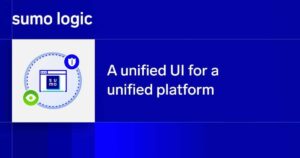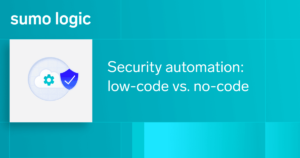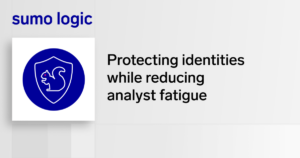Even though the cybersecurity skill gap dropped for the first time in recorded history in 2020, it is still one of the most pressing problems in the industry.
Demand continues to eclipse the supply of skilled cybersecurity professionals. The scarcity of qualified security workers with the right skill set, experience, and talent means that critical vulnerabilities turn many organizations into sitting ducks in the eyes of hackers.
While the gap closed slightly last year, the problem still persists, and it’s not going to go away anytime soon. Organizations need to learn how to proactively address this issue by utilizing their resources in the most effective manner and seeking innovative technologies.
The challenges posed by the cybersecurity skill gap
Cyber attacks are shape-shifting with each passing day, birthing new and unprecedented ways of inflicting damage to poorly protected organizations. The evolving nature of cyber threats, on top of the persisting cybersecurity skill gap, makes it difficult for SOC teams to properly defend their organizations.
However, the cybersecurity skill gap trend is not new. Security teams have been dealing with the pressure of being understaffed for a long time. CISOs must devise innovative schemes to minimize the effect of the problem as much as possible.
Before diving into the meat of the article, let’s first uncover the negative impact posed by the cybersecurity skill gap:
-
Alert fatigue / too many alerts to handle: Hackers are bombarding organizations with thousands of attacks, slowly wearing down analysts and making it impossible for them to respond to every one of those alerts in a timely manner, leading to alert fatigue.
-
Poor incident response time: The fact that there are not enough security professionals to cover all the necessary operations for a SOC team to function properly means analysts often fail to respond to incidents in a timely manner.
-
Increased impact of incidents: As a direct result of the inability to assess incidents on time, the impact is worsened, potentially causing irreversible damage to the organization.
-
Poor employee retention: Employee burnout is real. Unfortunately, the overwhelming workload due to the skill gap is often too much to handle in the long run. The never-ending avalanche of alerts is often the cause of poor employee retention in the security sector.
Ultimately, SOC teams are trapped in a perpetual loop of alert analysis and incident response. So what can CISOs do to lessen the impact of this problem? The first thing to do is to start managing the resources at their disposal in the most optimal manner.
Five ways CISOs can lessen the impact of the cybersecurity skill gap
The skill gap problem can be considerably lessened by optimizing the tools, processes and people available.
-
Create and improve your incident response plan
Invest in process governance instead of managing too many tools manually. Well-defined standard operating procedures (SOPs) help cyber teams direct their time on what really matters, allowing them to share accountability across the company.
By creating concise and optimized SOPs, you establish the most effective routes to incident detection, response, and remediation. This allows your SOC team to make faster and more accurate decisions.
-
Leverage automation in SecOps
Automation applied in cybersecurity is one of the most effective ways to nullify the negative effect of the skill gap. Analysts spend a large portion of their time performing manual tasks such as collecting data regarding incidents and assessing false positives. And considering that these tasks are extremely time-consuming and can be easily automated, the upside of implementing security automation is immense for SOC teams.
This is why SOAR (security orchestration, automation and response) is a game-changing technology, as it allows SOC teams to easily automate multiple SecOps, thus freeing up a lot of their time. In return this allows the SOC team to be more productive as automation addresses repetitive and time-consuming tasks performed by security analysts, thus lessening the impact of the skill gap.
-
Reduce false positives and create incidents for real threats
Oftentimes, security analysts are required to manage huge volumes of data collected by several tools, especially from SIEM (security information and event management). All these alerts have to be reviewed by the security staff. Considering that most of the triggered alerts are false positives, they end up spending their time unproductively. This is why SOC teams must be supported by a modern security solution that reduces the noise of too many alerts.
SOAR helps security teams deal with too many false positives. SOAR’s TRIAGE distinguishes false positives from real threats and as a consequence creates fewer incidents for the cyber team to work on.
-
Put all tasks in one place. Practice incident simulations.
Thanks to the automation of time-consuming tasks, the creation of automatically assigned tasks and well-defined procedures, analysts can spend their time on value-added work. Additionally, training focus could be allocated on increasing skills of value-based activities, such as process governance and incident response preparedness.
The continuous practice of incident simulations allows the cybersecurity team to be ready to analyze all the information obtained and make critical decisions.
-
Ease the workload of your SOC team with new technologies
Investing in advanced technologies that rely on machine learning, artificial intelligence and progressive automation will significantly ease the workload of your SOC team. This is why it is essential for CISOs to keep up the pace with the latest developments in cybersecurity.
Forward-thinking technologies, such as SOAR, act as connective tissue between people, processes and technologies. Not only does SOAR help automate a wide array of SecOps, but with its orchestration capabilities, it allows analysts to seamlessly integrate with third-party tools, monitor relevant KPIs, and launch playbooks that speed up incident response processes.
Ultimately, SOAR allows SOC teams to be faster and more efficient by bringing orchestration, automation and quick response to the table. This is what SOC teams need to minimize the effect of the cybersecurity skill gap.
Conclusion
The cybersecurity skill gap is something every CISO has to live with. Investing in technologies, like Sumo Logic Cloud SOAR, that augment your SOC team’s skills, is vital in the battle against skilled resource limitations:
-
10x improved SecOps productivity
-
Faster incident response time
-
Reduction of false positives
-
Well-informed decisions
By incorporating security automation and orchestration, Cloud SOAR allows security professionals to be faster and more efficient in alert assessment and response, closing the cybersecurity skill gap.
Click here to request a demo of Cloud SOAR and start closing the skill gap for your security operations team.



